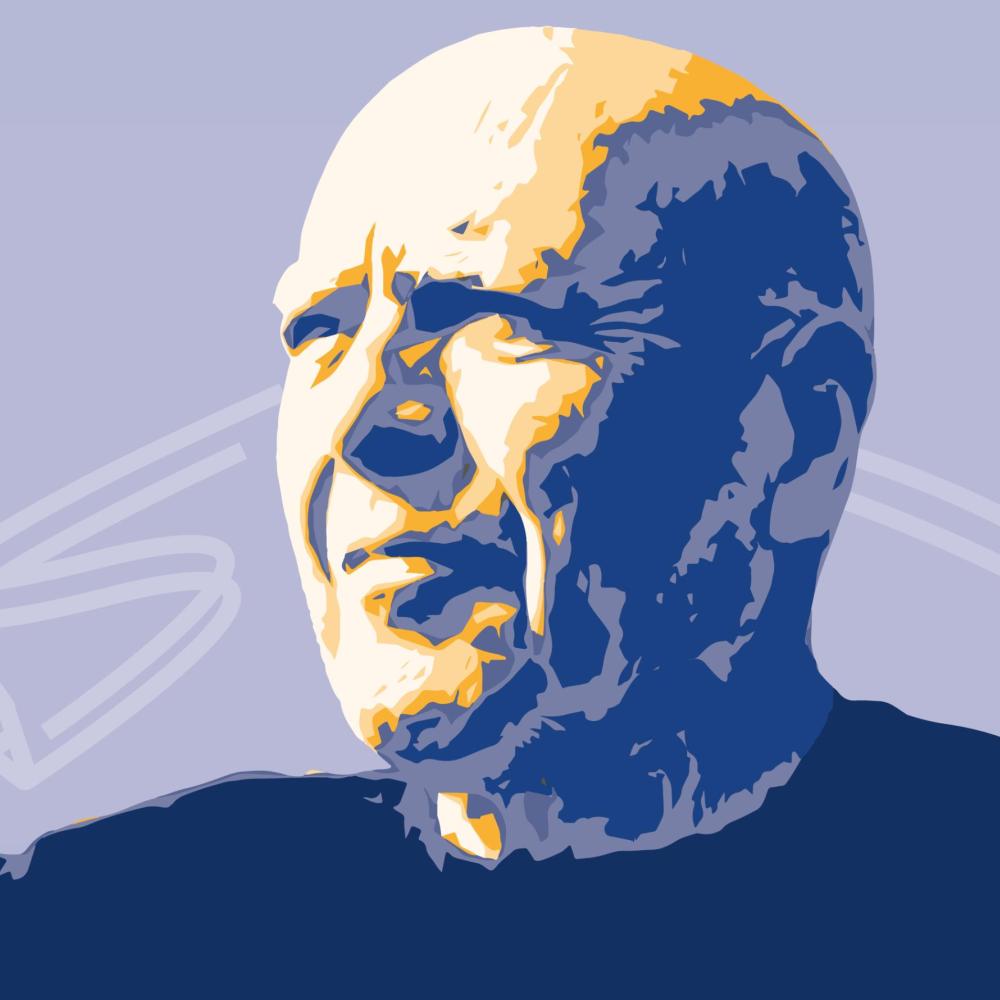

Koenraad Tinel (°31 maart 1934)
Profession: sculptor and draughtsman
Nationality: Belgian
Why an honorary doctorate?
22 September 2020. Koenraad Tinel, together with Simon Gronowski, his friend, brother and companion de mémoire, receives the honorary doctorate of VUB.
Forgiveness and friendship
Tinel's exceptional friendship with Simon Gronwski sprang from a background that could not be further apart. Nazi scion versus Jew. Jew versus Nazi scion. They are connected by a past, by guilt, each on his side of the line. With their joint book, they give hope for hope.
Their story is one of reconciliation, of forgiveness stronger than hate. Letting go: a way of life. Both inspire and set an example for generations to come. These powerful values, which have survived in spite of all the storms, nestle securely beneath the wings of those of VUB: freedom, equality, and solidarity. That's what life is all about.
How do you know what light is, if you don't recognise darkness? How does intense gratitude for friendship feel if you have never met hatred? Koenraad Tinel knows that each side also has another. There is no positive without negative because there must be negative to see positive. It helps him, knowing that behind the ugliness lies beauty. That when you turn bad around, you encounter good.
“If there’s no negativity, there can’t be any positivity.”
About his career
Talent for images and for friendship
31 March 1934. Koenraad is born into the musical and artistic Tinel family. His father is a sculptor, his mother is a star at the piano and sings. Koenraad is very young when he starts drawing and receives his first piano lesson at the age of five. Koenraad has a knack of extracting enchanting sounds from the piano. But he wants to be a visual artist at all costs and starts studying in that direction.
But the Second World War and Nazism are ruthless and a staggering experience that fuses forever in young Tinel's memory. He will never get rid of the guilt about the suffering his family inflicted on the Jews.
He goes on a memorable study trip to the East Indies, later works as a scientific illustrator at the Royal Institute of Natural Sciences in Brussels and in 1963 starts his own foundry. Museums and important European clients are among his customers, but in '71 he says goodbye to blacksmithing in order to devote himself entirely to free sculpture and drawing. Tinel also starts teaching at the Sint-Lukas Hogeschool, which he does with great dedication until 1999.
Tinel excels in metal creations and impresses fans and critics alike with magnificent exhibitions. His talent for drawing is exceptional and Belgian galleries also promote his work abroad. Tinel works with ink and bister (yellow-brown pigment) and illustrates literary works by Isaac Babel, Paul Celan, and others. Scheisseimer and Flandria Catholica, his sketched youthful memories, arouse all-round admiration. They lead to exhibitions and a successful theatre tour. Koenraad Tinel works on projects by befriended artists Josse De Pauw and Peter Vermeersch and also fulfils commissions for the Festival of Flanders, for example.
In 2012, the VRT documentary Oorlogskinderen (War Child) is released, showing how he and Simon Gronowski experienced the horrors of war, one as a deportee, the other as a fleeing collaborator. An intense friendship develops between the two, which helps them both come to terms with the past. Both carry scars, both have feelings of guilt. That is what their book Eindelijk bevrijd (Finally Liberated) is about, which keeps readers open-mouthed and glued to the pages in 2013.
The two men now lecture to young people, bringing a message of hope and happiness, and demonstrating the awe-inspiring power of forgiveness.
What is an honorary doctorate?
VUB has awarded honorary doctorates every year since 1978 to personalities from the most diverse backgrounds who have made a remarkable contribution to their field and to society. From this solemn moment of recognition, they bear the honorary title of Doctor Honoris Causa of VUB.